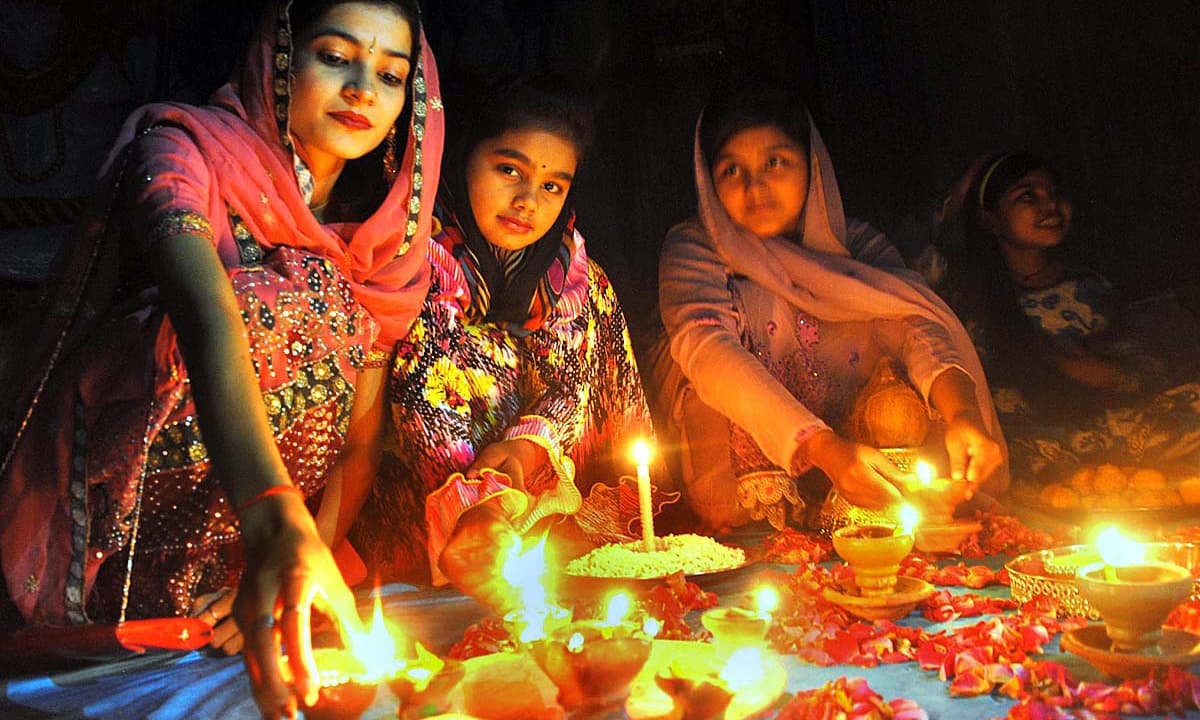Today I'm doing a special holiday post.
That's because it's Diwali – the Hindu Festival of Lights!
If you're not familiar with the name,
you may have also seen it spelled as Dewali, Divali, or Deepavali.
I'll be sticking with Diwali in this post, but depending on where it
is celebrated it can be called by different names. Diwali is
celebrated all over the world, wherever Hindus worship. The holiday
marks the beginning of the New Year for Hindus in northern India.
I regret to say that I had never heard
of Diwali until about two months ago. I went to look at something on
Etsy and they were advertising gifts for Diwali. I was immensely
intrigued, and I've truly enjoyed looking into it! Diwali is a
beautiful festival.
Here's some of what I've learned:
Gambling and games of chance are a
major part of the festivities of Diwali. Stories in Hindu mythology
tell of mortals gambling with the gods, or of the gods gambling with
one another. When humans gamble during Diwali, it is hoped that
Lakshmi, the goddess of wealth, beauty, and luck, will grant them
some of her good fortune.
Besides gambling, Diwali celebrations
are marked by two truly beautiful visual celebratory acts. The first
are a series of patterns called alpanas. Only some regions of India
make alpanas part of their celebration, but some of the places which
do hold yearly competitions to find the most beautiful. Aplanas are
designs painted on the floor, traditionally using a flour-based
substance. I've also seen a similar style of floor art called
rangoli. These patterns are believed to bring good luck the
household...and they are beautiful.
(This pattern was called "simple". I can't imagine painting something like that - let alone a more complicated pattern!)
Yet it
is the second act for which Diwali is perhaps most famous.
Throughout the celebration, there are lights everywhere. In recent
years electric bulbs have begun to be used, but fires, candles, and
oil-based lamps are still used. Enormous firework displays are also
common.
Depending
on where Diwali is being celebrated, the reasons for the lights vary.
I've heard stories say that the lights were lit to welcome a great
war hero home; other locations line paths with torches to help guide
the spirits of departed ancestors to the afterlife; still others say
that the lights are lit to celebrate a mighty god leading the world
out of darkness. However, the tale I've heard most often revolves
around Lakshmi. It says that the lights are lit to guide the goddess
to the houses of her worshipers so that she might bless them.
“During the festival
of Divali in October or November, Lakshmi roams the Earth in search
of a place to spend the night and bestow her gifts. All over India
hundreds of little oil lamps are lighted and placed around houses and
rooftops and even in ponds and streams to attract her to them. The
whole of India is like a fairyland, glittering and twinkling in
devotion.”
Variations of Diwali are celebrated all over the world by Hindus, with the celebration taking on its own unique customs based on the country of celebration. An example is Tihar, a holiday similar to Diwali which is celebrated in Nepal. Though Tihar also honors sacred animals, it maintains many of the festivities of Diwali. Most similar is the practice of gambling and games of chance during Tihar (both of which are illegal during the rest of the year, but are allowed during the holiday) and the lighting of oil lamps to welcome Lakshmi, goddess of wealth, into a family's home.
If you're celebrating Diwali this year, I wish you a very happy one - and I'd love to see pictures! Want to learn more about the festival? Check out this link!
Tomorrow is another holiday, so if you'd like to read my post about Halloween/Day of the Dead/Samhain, check it out here.
I'll see you guys next week!




Celebrate Diwali corporate gift hampers, designed to shine bright with festive cheer. Our premium selection includes gourmet treats, elegant decor, and personalized touches to delight your employees. Show your appreciation and make this Diwali memorable with a gift that truly reflects your gratitude and goodwill.
ReplyDeleteThis comment has been removed by the author.
ReplyDeleteDiwali, the Festival of Lights, is one of the most cherished festivals in India. However, the traditional way of celebrating Diwali often leads to increased pollution levels due to firecrackers, excessive waste, and harmful emissions. With growing environmental concerns, many people wonder how they can still enjoy Diwali without contributing to pollution
ReplyDeletegreenecosystem.in/celebrate-an-eco-friendly-diwali-how-to-reduce-pollution-and-still-have-all-the-fun/
India’s festivals are a vibrant celebration of culture, tradition, and unity. Festivals of India in Hindi. From the dazzling lights of Diwali to the joyful colors of Holi, each festival brings people together in a unique way. Whether it’s Navratri’s dances, Eid’s feasts, or Pongal’s harvest rituals, these celebrations reflect India’s rich diversity and heritage.
ReplyDeleteThankful for this wonderful post! Your insights on Diwali are so helpful. I also write about when Diwali is celebrated in 2025. At Astroera, we provide detailed guidance for everyone.
ReplyDelete